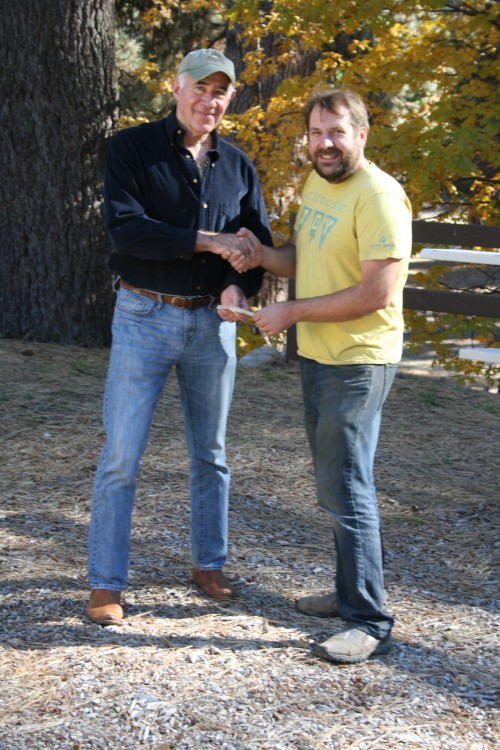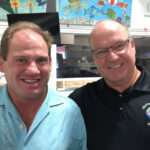
Photo by Marshall Smith
Dr. Dick Goldberg, Mountain Disaster Preparedness’ medical director, has long sought an Idyllwild facility in which post-disaster medical treatment could be conducted.
Goldberg noted the Idyllwild Fire Department would likely be overwhelmed as an incident command center and the two local medical clinics, if open, would also be swamped with walk-ins.
Goldberg is a retired emergency room physician with experience shaping disaster responses and setting up emergency clinics in New Orleans, after Katrina, in the Dominican Republic after the Haiti earthquake, and also in the Philippines and Japan.
MDP, with its core medical group of Goldberg, Dr. Ken Browning and 11 volunteer nurses, LVNs and others experienced in trauma care, has the expertise and personnel to provide post-disaster treatment but has lacked a facility.
That is no longer the case. Kelly Schlenz, new operations director at Idyllwild Pines Camp, continues the community outreach of which his father had been a part when he was camp director. Schlenz and his board have agreed to allow MDP to use McNeil Hall, the largest facility on the Idyllwild Pines campus, as a medical treatment and surgery center in the event of a significant disaster that isolates Idyllwild for an extended period.
“This is a critical piece that has been missing,” said Goldberg. “It is such an important element for our disaster response.”
For Schlenz, it was a “no-brainer” to form this liaison with the community. Schlenz is a “Hillbilly,” having attended kindergarten through eighth grade at Idyllwild School and ninth through 12th grades at Hemet High. He also is fourth generation at Idyllwild Pines. His great-grandfather, Earnest Schlenz, volunteered as a groundskeeper at the camp; his grandfather Walt and father Paul both held the position of executive director for a combined 50 years.
Schlenz grew up at Idyllwild Pines and now lives, with his family, in the same house in which he grew up. “This is an opportunity to support the community and play a role in a disaster,” said Schlenz. “I grew up here and want to continue to be a part of the community.”
Goldberg expects the pieces to be in place within two weeks, including a mobile storage facility for medical equipment to be located near McNeil on the Idyllwild Pines campus. He noted members of his core medical group have backgrounds in critical care, obstetrics and counseling — valuable components to deal with the most common post-disaster problems such as muscular/skeletal injuries, precipitous deliveries (births) and post-traumatic stress.
Even though the agreement with Schlenz and Idyllwild Pines is a plus for the community, Goldberg cautioned that it is not an all-situations solution. “We don’t want to give the impression we can care for a large number of people,” said Goldberg. “We’ll still have limited capacity and will only be able to care for the most serious cases. We need to have the community be as self-sufficient as possible.” Goldberg stressed preparation — having adequate storage of family medications, first-aid supplies, equipment and, especially, water. “Everyone needs to have clothing and blankets sufficient to prevent exposure to the elements,” he said. “Preparation ultimately involves having adequate food, shelter and water after a disaster.”
Goldberg noted MDP has information available to the public to help in preparing for disaster scenarios. Common post-disaster injuries include dust-related problems that interfere with breathing, foreign bodies in the eyes and lacerations. Goldberg recommends stocking remedies for dealing with these most common issues.
For more information about MDP and disaster preparation, visit www.mdp-idyllwild.com. For information about Idyllwild Pines Camp, visit www.idyllwildpines.org.










